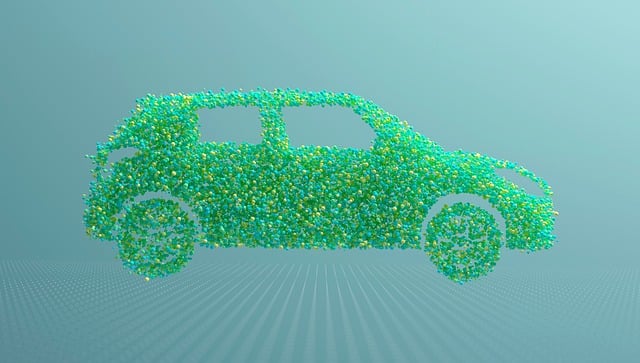Divorce complicates vehicle ownership transfer due to asset division and debts, including secured loans. Title loan divorce implications require careful negotiation or agreements between ex-spouses, potentially delaying transfers. Legal professionals guide clients through these complexities, while digital platforms offer swift alternatives, empowering couples to make informed decisions for fair resolutions.
When going through a divorce, every aspect of your life is up for review. The same goes for your vehicle. Understanding the implications of title loan divorce implications is crucial if you aim to streamline the transfer of car ownership post-divorce. This process can be fraught with legal hurdles, but with the right strategies, you can navigate it efficiently. Dive into this guide to explore these intricacies and discover ways to facilitate post-divorce car ownership transfers without delay.
- Understanding Title Loan Divorce Implications
- Legal Hurdles in Vehicle Transfer Post-Divorce
- Strategies to Streamline Post-Divorce Car Ownership Transfers
Understanding Title Loan Divorce Implications

When a couple goes through a divorce, it’s not just their shared assets but also their financial obligations that need to be divided and settled. In the case of secured loans like title pawn or fast cash loans, understanding the title loan divorce implications is crucial. These loans use a vehicle as collateral, so the process of transferring ownership can become complicated during a divorce, potentially causing delays in vehicle transfers.
Divorce proceedings may require both parties to disclose all their assets and debts, including outstanding loans secured against their vehicles. Depending on the court’s decision, one party might be responsible for paying off the loan entirely or sharing this responsibility. Keeping your vehicle during a divorce becomes possible if these loans are addressed promptly and transparently in the legal process. This ensures that the borrower retains possession while also fulfilling their financial obligations, preventing any unnecessary delays in the transfer of vehicle ownership post-divorce.
Legal Hurdles in Vehicle Transfer Post-Divorce

After a divorce, the process of transferring vehicle ownership can be complicated by various legal hurdles. When a couple separates, they often need to divide their assets and debts, including any vehicles they jointly owned. This can lead to disputes, especially if one party intends to keep the car or needs time to arrange alternative transportation. In such cases, the simple act of changing the title and transferring ownership becomes a complex legal matter.
One common issue arising from divorce is the presence of a title loan on the vehicle. Title loans are financial solutions that use a vehicle’s registration as collateral, offering quick funding to borrowers. After a divorce, deciding how to handle this debt can delay the transfer process. Spouses may need to negotiate or reach agreements regarding the loan extension, especially if one party is responsible for repaying it. Legal professionals often guide clients through these intricate matters, ensuring a smooth transition and minimizing potential financial risks associated with title loan divorce implications.
Strategies to Streamline Post-Divorce Car Ownership Transfers

Navigating the aftermath of a divorce can be complex, especially when it comes to handling shared assets like vehicles. One significant factor that often arises is the impact of title loan divorce implications on car ownership transfers. These implications can create delays and add unnecessary stress during an already challenging period. However, there are strategies in place to streamline this process, ensuring a smoother transition for both parties.
One effective approach is to utilize online applications for Dallas Title Loans, which allow for quick and efficient transfers of vehicle ownership. By leveraging digital platforms, individuals can bypass the traditional, time-consuming paperwork and visit requirements. Additionally, understanding the concept of vehicle equity can empower divorcing couples to make informed decisions about their assets. This knowledge enables them to negotiate terms that consider the full value of the vehicle, ensuring a fair resolution and prompt transfer of ownership.
When navigating a divorce, understanding the complexities of title loan division is crucial for a smooth transition. The process can be hindered by legal hurdles regarding vehicle transfers, but with strategic planning, these challenges can be overcome. By implementing efficient strategies to manage post-divorce car ownership, individuals can streamline the transfer process and ensure a less stressful experience during this life-changing event.






